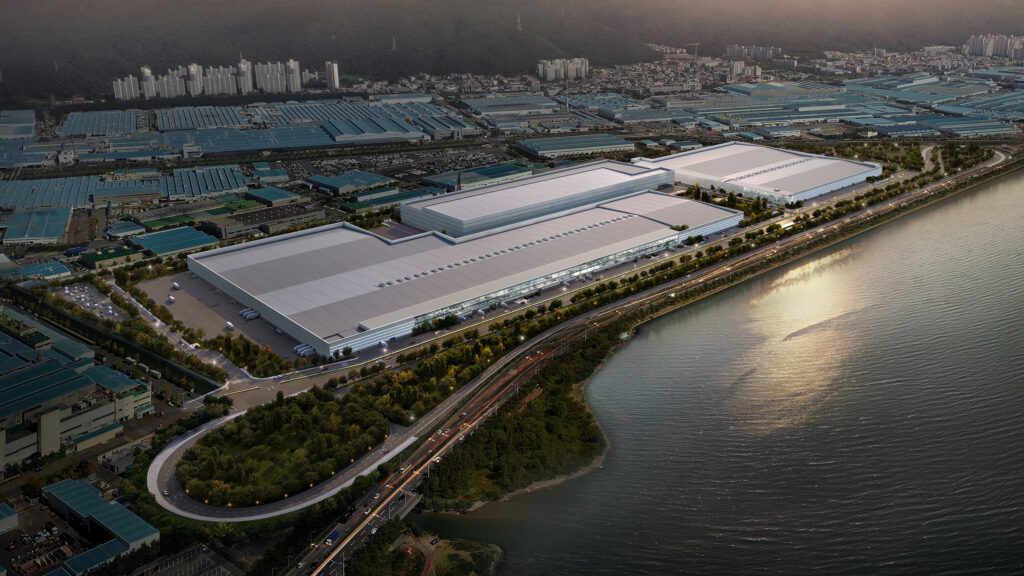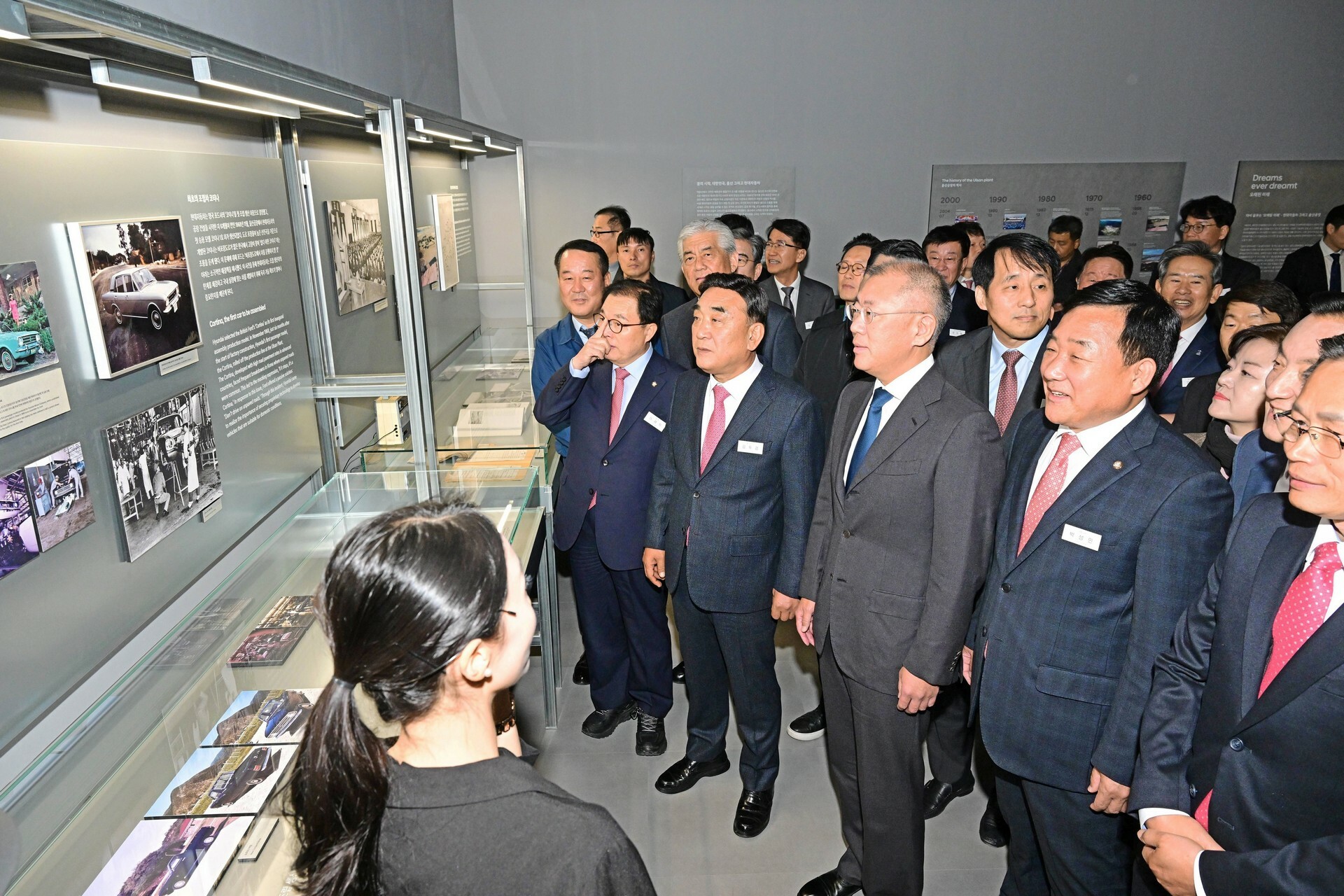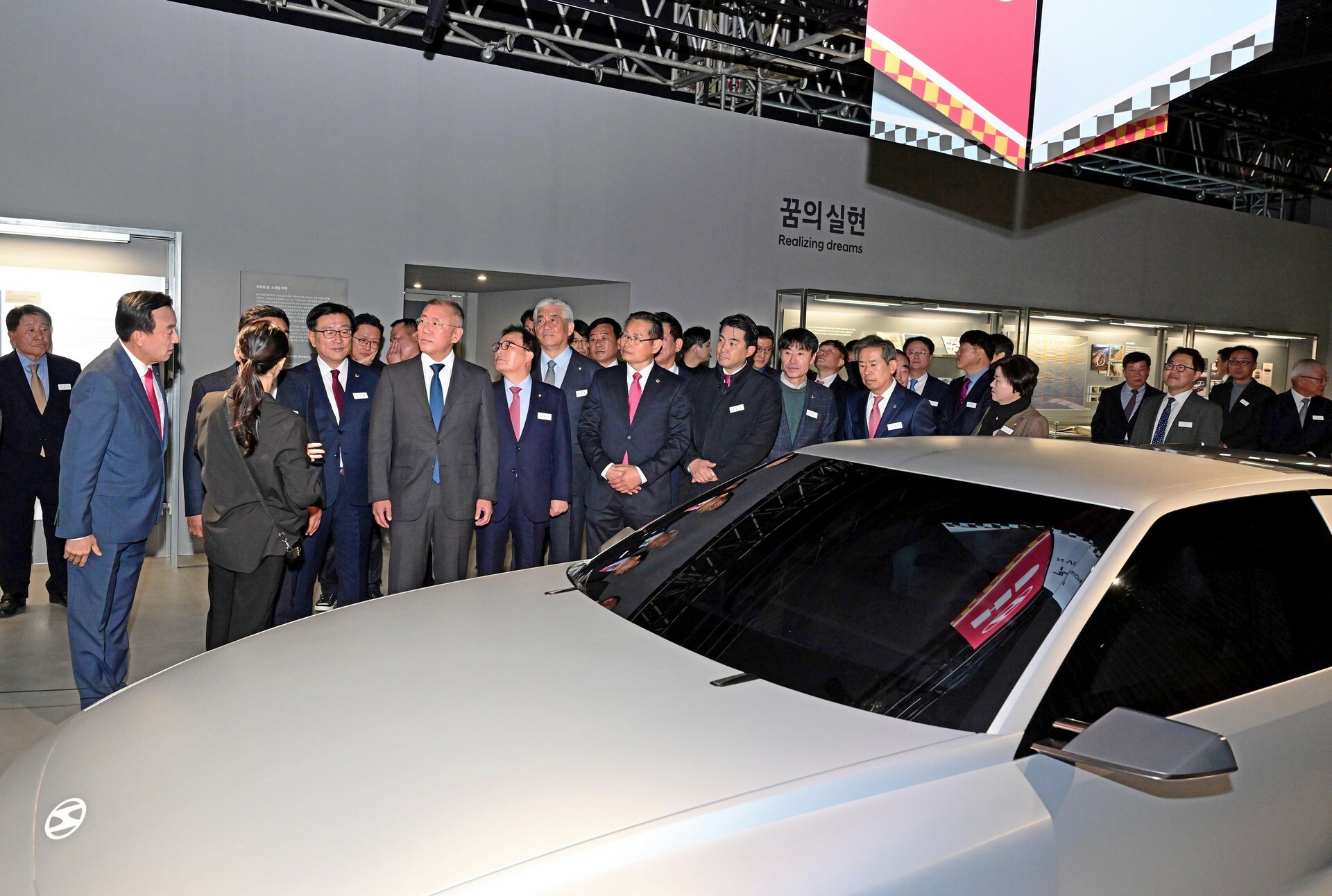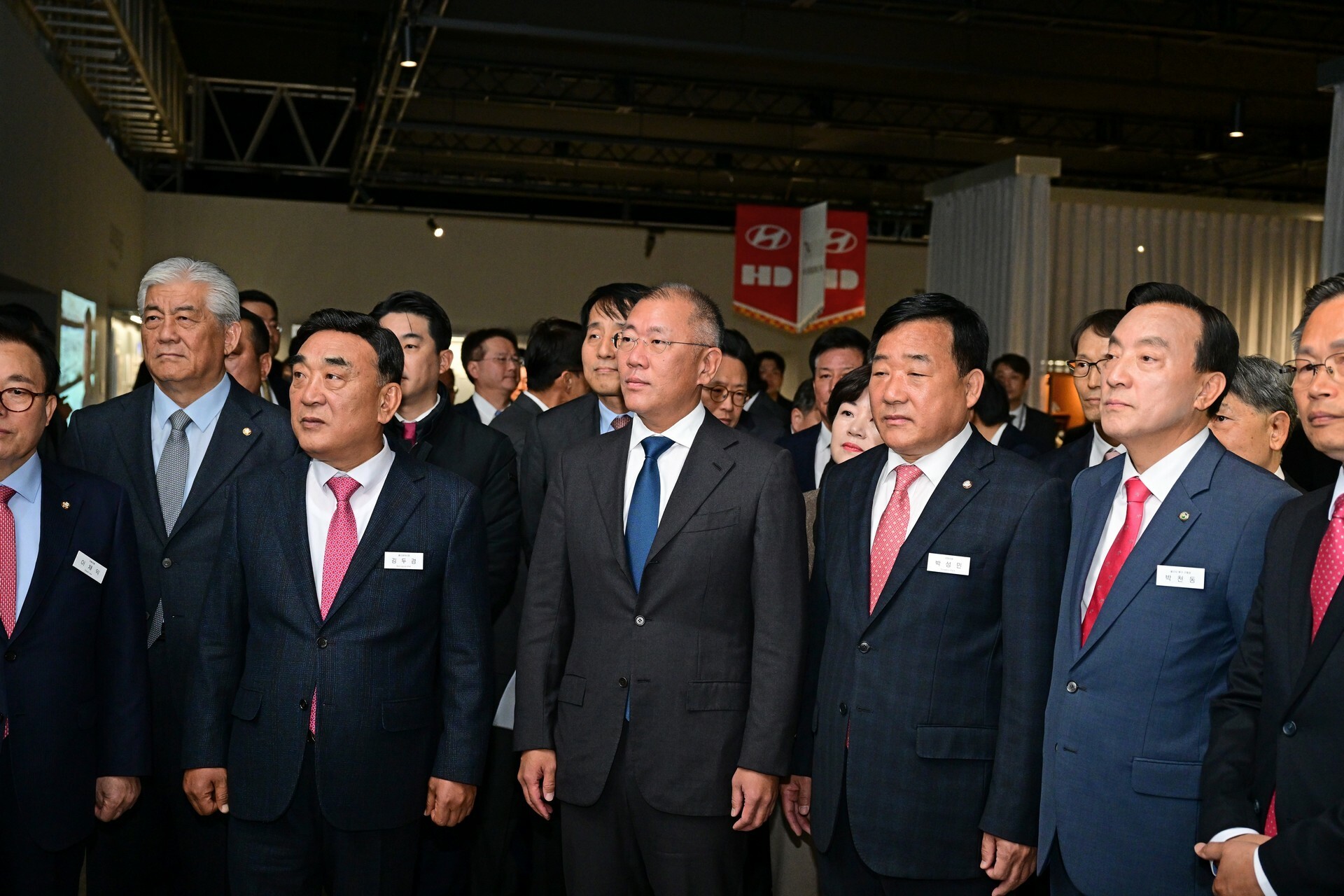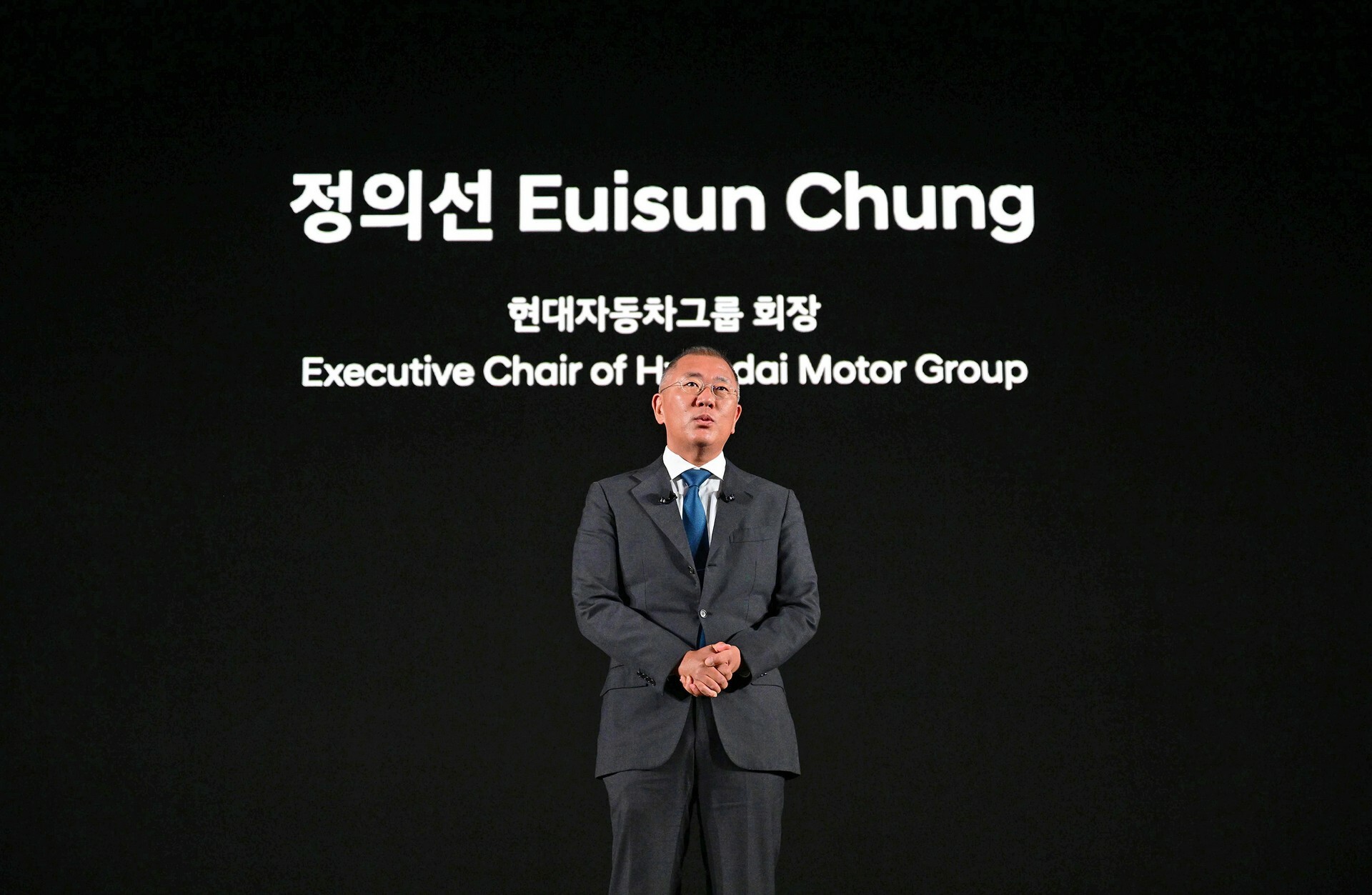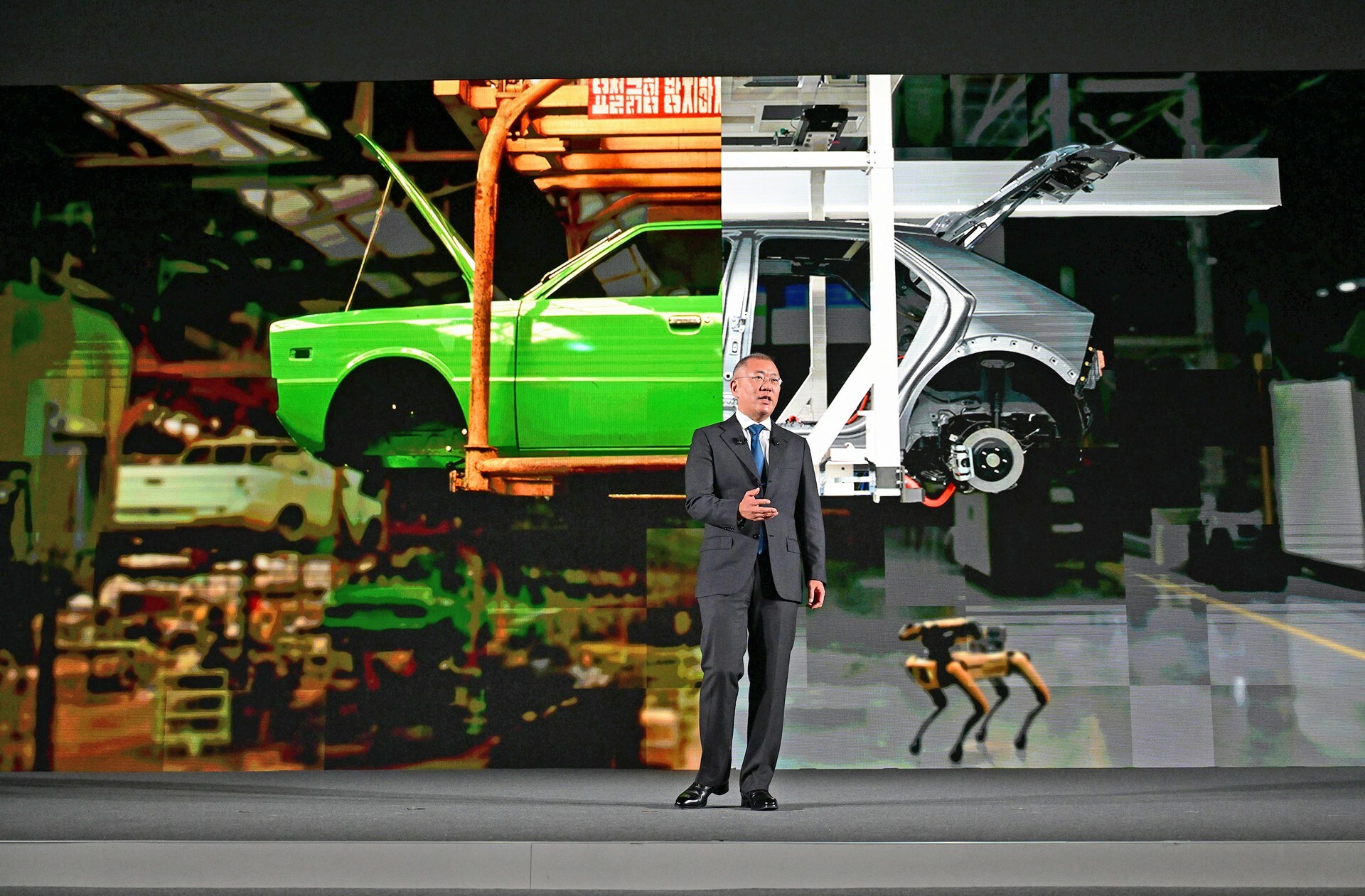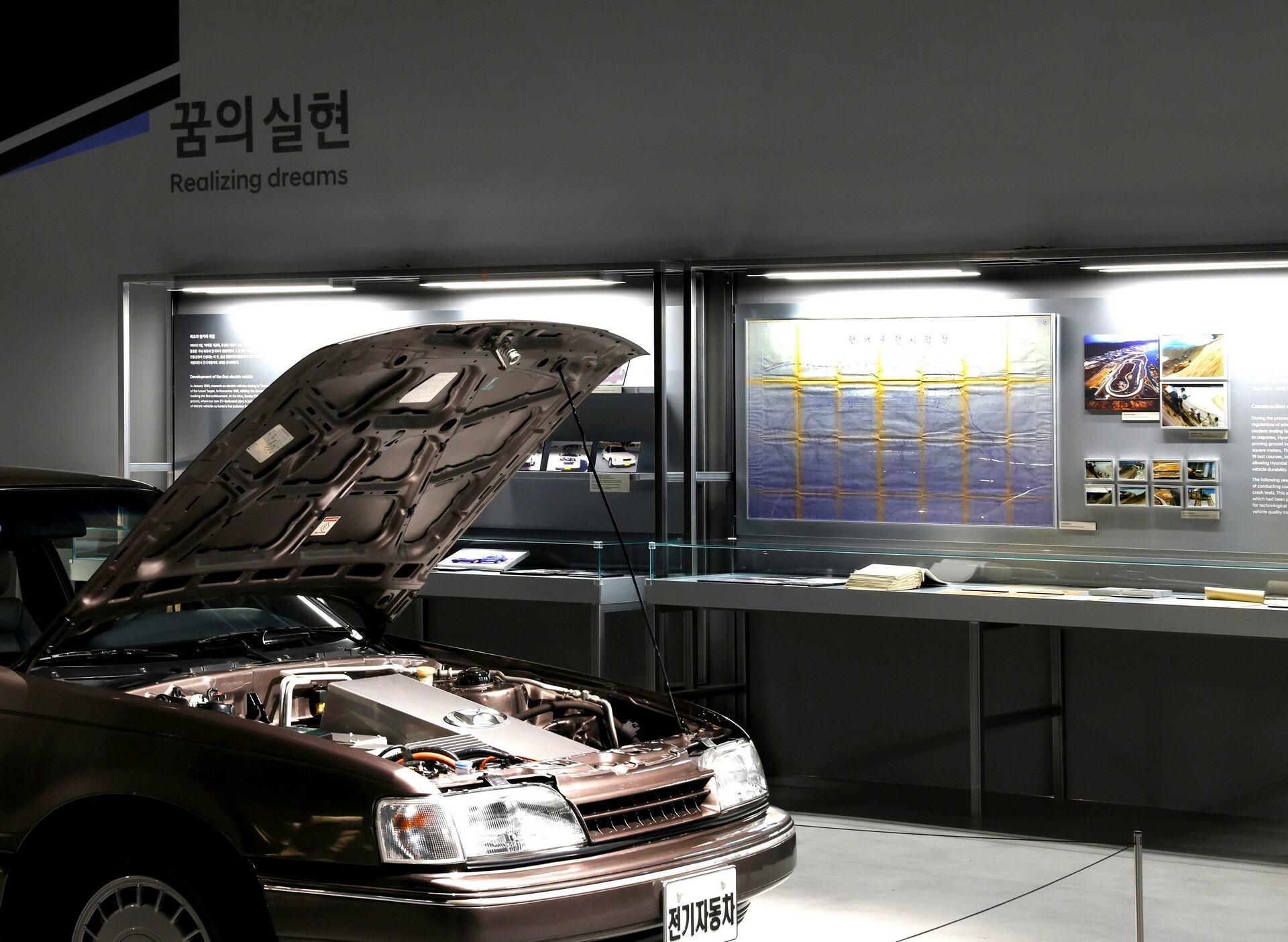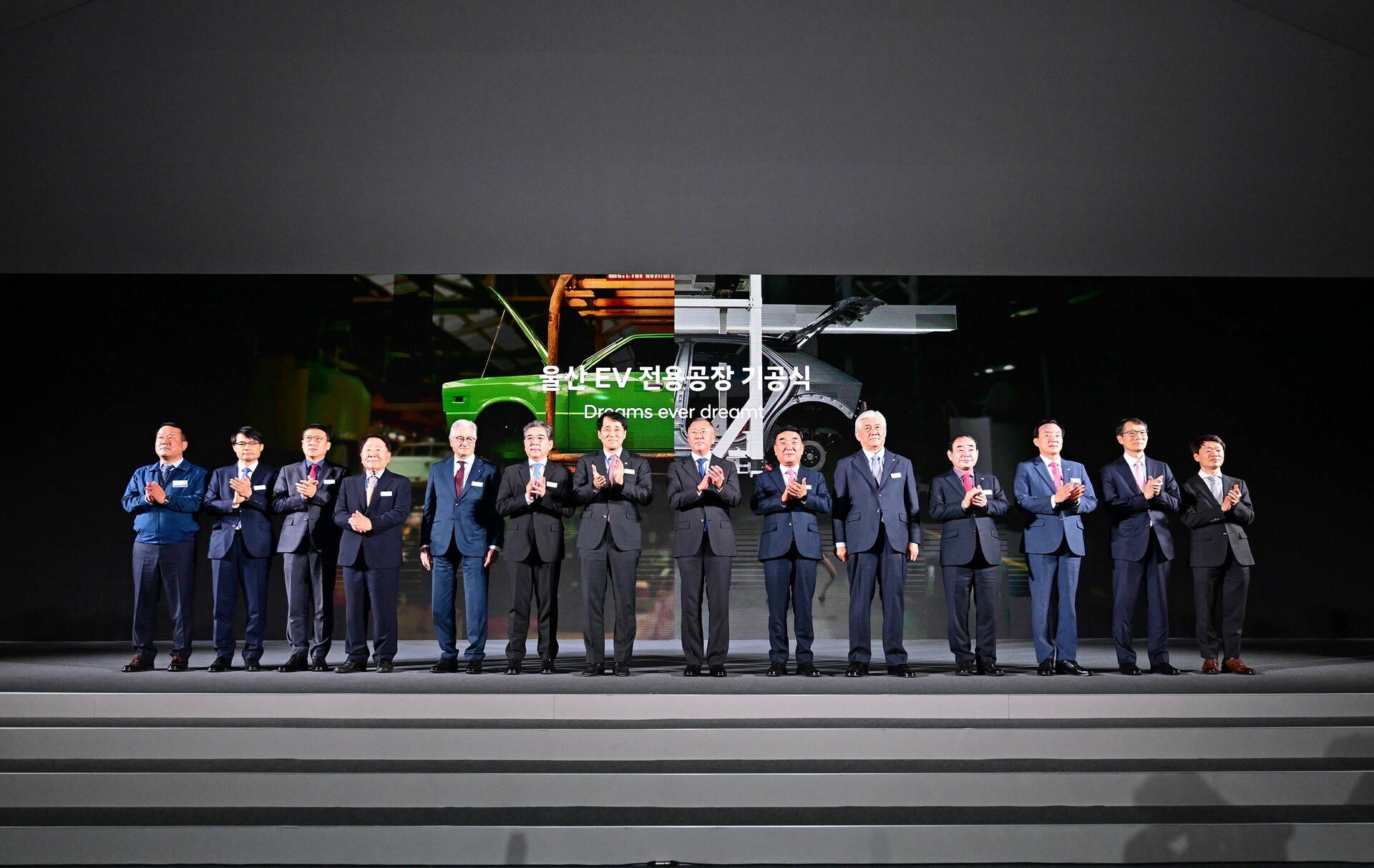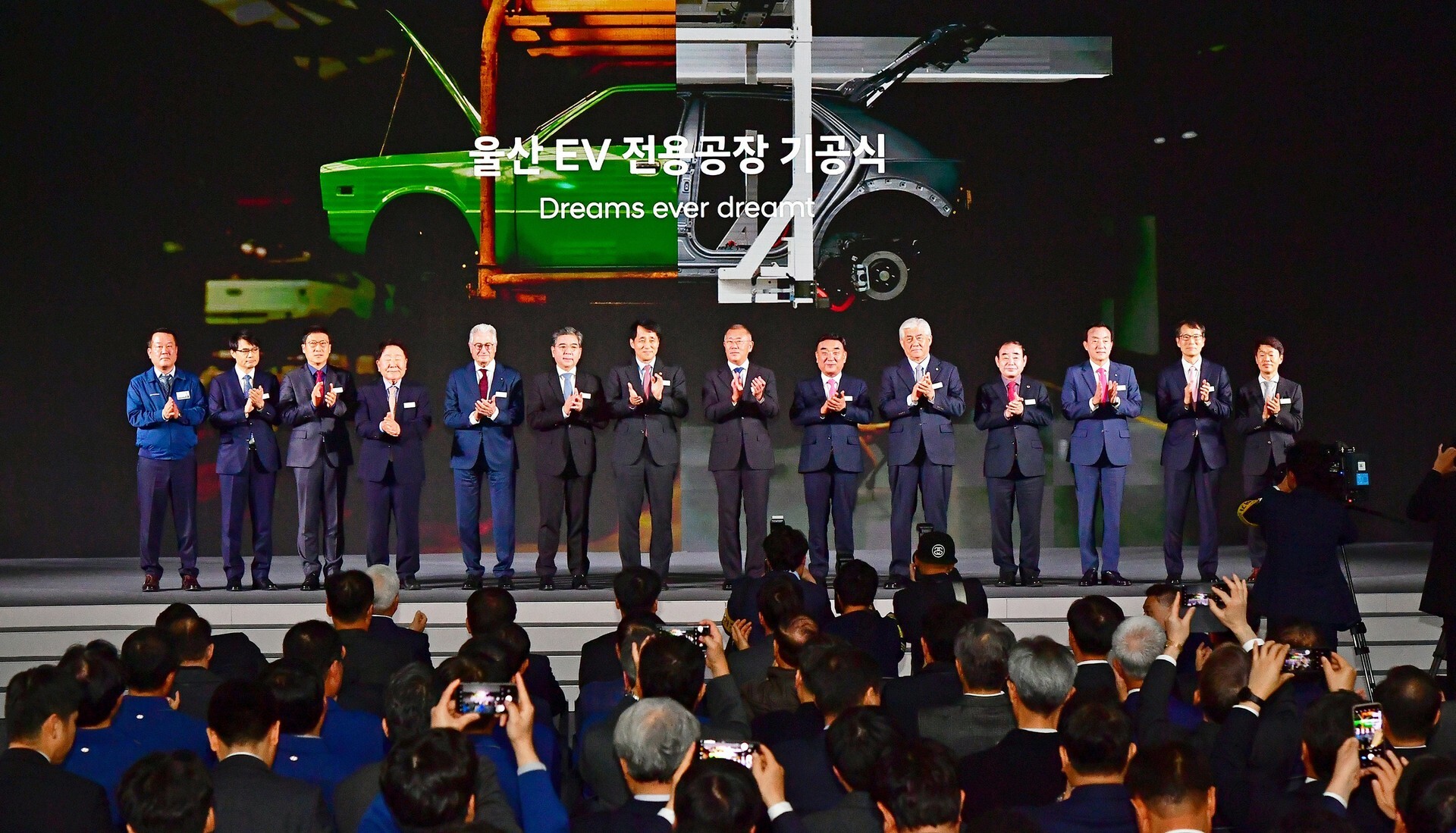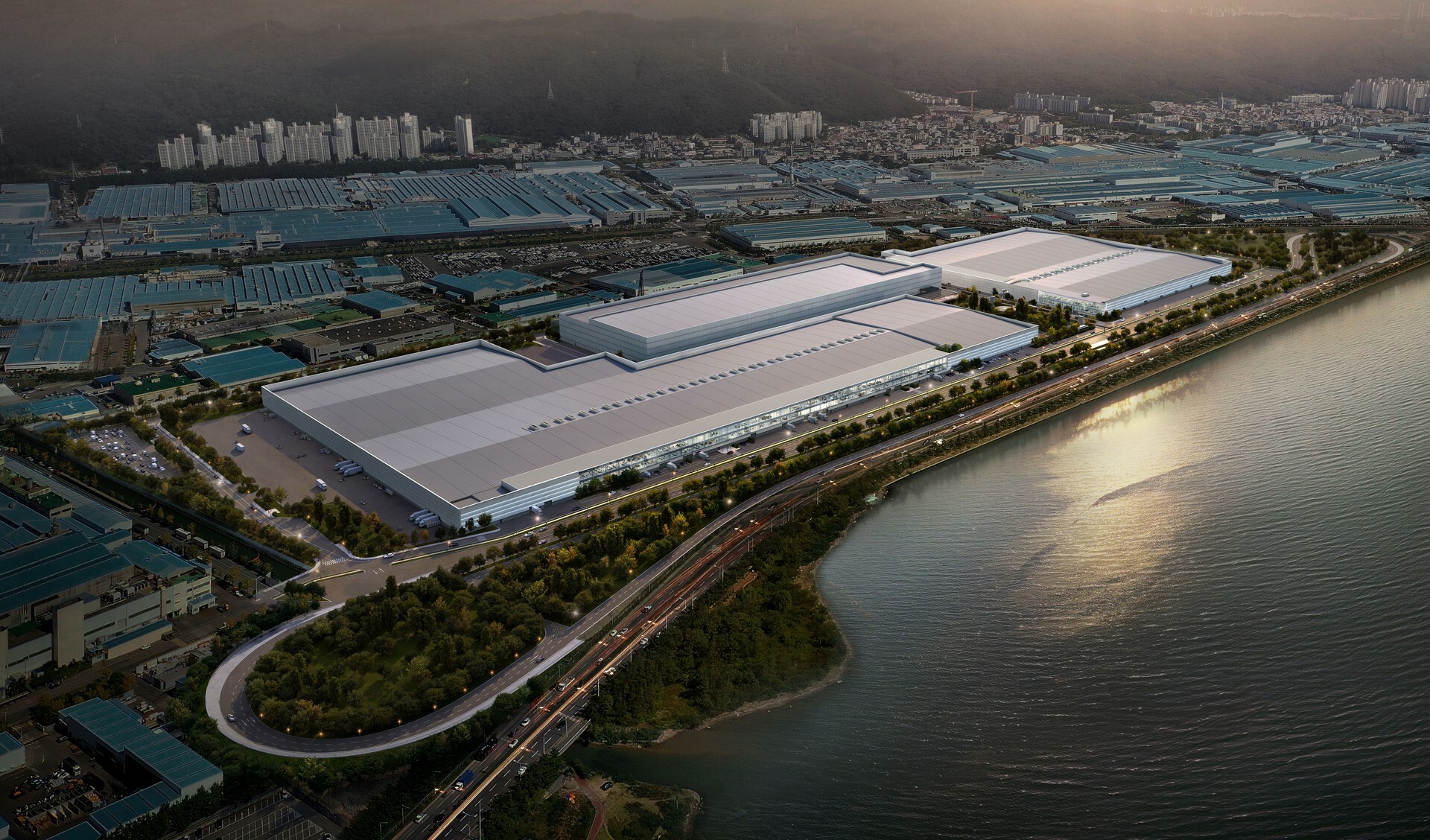Hyundai has broken ground on a new electric vehicle factory in Ulsan, South Korea, that will have the capacity to build up to 200,000 EVs annually. The carmaker describes the site as its “base of future mobility production” and is located close to the original factory that Hyundai opened in Ulsan back in 1968.
This new site, Hyundai’s first new plant in Korea in 29 years, encompasses an area of 548,000 square meters and is being brought to life through a $1.53 billion investment. Full-scale construction of the facility will start later this quarter and is scheduled for completion in 2025. Hyundai will then begin mass EV production in the first quarter of 2026, kicking things off with a new electric SUV from Genesis.
The factory is located on the site of Hyundai’s former proving ground first used in the 1980s. It will use the same manufacturing platform the Hyundai Motor Group developed at its Innovation Center in Singapore using demand-driven, AI-based intelligent control systems. Hyundai’s new Ulsan site will also use 100% renewable energy, have automated parts logistics, and a flexible production system that allows for it to be quickly updated to accommodate new models.
Read: Hyundai Will Boost Worker Pay 25% By 2028 After UAW’s Record Deal With Detroit Three
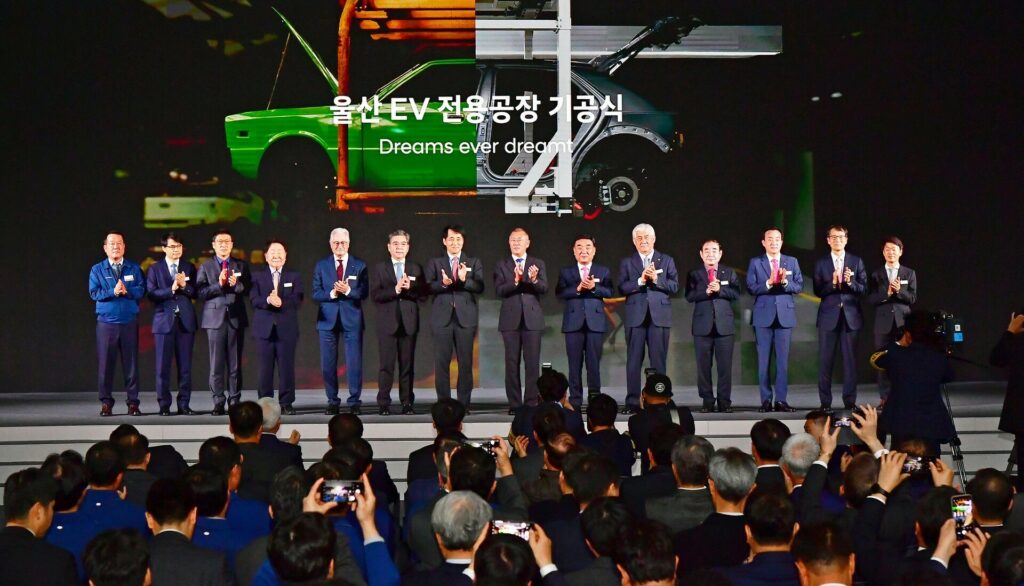
Additionally, the factory will have a large group lounge area and a central park serving as both a rest area and a hub connecting each building. Solar power panels and upcycled concrete panels will also be applied to the factory’s façade.
“The new EV-dedicated Plant in Ulsan is the beginning of a promising future for the next 50 years and the era of electrification,” Hyundai Motor Group executive chair Euison Chung said at the groundbreaking ceremony. “I am honored to share our dream of a 100-year company here. Just as the dream of building the best car in the past made Ulsan an automotive city today, I trust Ulsan will be an innovative mobility city that leads the way in the era of electrification, starting with a dedicated EV plant.”



